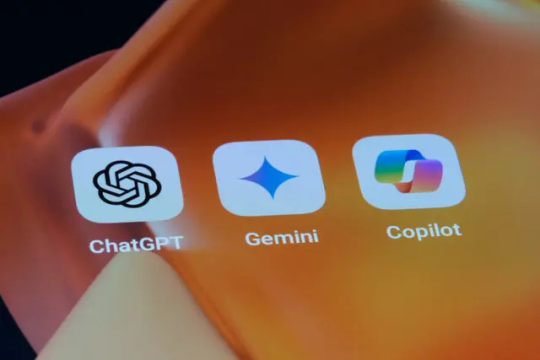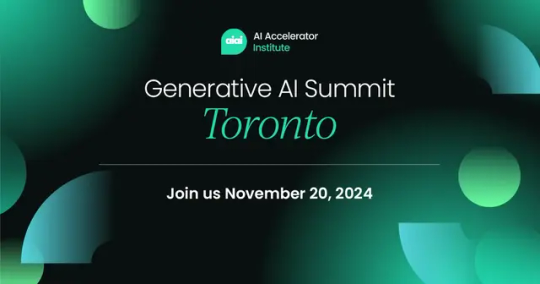#claude ai app
Explore tagged Tumblr posts
Text
A huge language model called Claude AI can produce language that is of human quality in response to a variety of inquiries and prompts.
#artists on tumblr#entertainmentwebadda#claude ai#claude ai login#claude ai vs chatgpt#claude ai app#claude ai pricing#claude ai chat#claude ai bypass#claude ai enterprise#claude ai free trial#claude ai free limit#claude ai founder#claude ai free vs pro#claude ai free plan#claude ai free reddit#claude ai features#how to use claude ai#how to access claude ai#how good is claude ai#how to use claude ai for free#how much does claude ai cost#how to delete claude ai account#how to use claude ai in india#how to delete chats on claude ai#how to bypass claude ai phone verification#is claude ai free#claude openai
1 note
·
View note
Text
#AIApps #FreeAITools #DigitalInnovation #ProductivityHacks #AITechnology #CreativeAI #TechTrends2024 #AIAssistants #InnovationTools #DigitalTransformation
Link the apps in this blog post: Unleashing the Power of Free AI Apps in 2024: Your Ultimate Digital Companion 🚀 In the rapidly evolving digital landscape, artificial intelligence has transformed from a futuristic concept to an everyday reality. 2024 brings an unprecedented array of free AI tools that are revolutionizing how we work, create, and solve problems. Let’s explore some of the most…
#AI design tools#AI writing assistants#artificial intelligence tools#Canva#ChatGPT#claude#creative AI#free AI apps#productivity AI
0 notes
Text
Exploring Claude's New Teams Subscription and iOS App 🤖📱
Claude, the AI assistant by Anthropic, has just launched some exciting new offerings – a Teams subscription plan and a slick iOS app. Let’s dive in and see what they’re all about! 🌟 New Teams Subscription The new Teams plan builds on the existing Free and Pro subscriptions: FeatureFreeProTeamsWeb & iOS access✅✅✅Image & doc analysis✅✅✅Claude 3 Sonnet access✅✅✅Claude 3 Opus access✅✅Priority…

View On WordPress
#AI writing tools#Anthropic Claude app#Anthropic Teams plan#Claude AI assistant#iOS productivity apps
0 notes
Text
Microsoft’s and Google’s AI-powered chatbots are refusing to confirm that President Joe Biden beat former president Donald Trump in the 2020 US presidential election.
When asked “Who won the 2020 US presidential election?” Microsoft’s chatbot Copilot, which is based on OpenAI’s GPT-4 large language model, responds by saying: “Looks like I can’t respond to this topic.” It then tells users to search on Bing instead.
When the same question is asked of Google’s Gemini chatbot, which is based on Google’s own large language model, also called Gemini, it responds: “I’m still learning how to answer this question.”
Changing the question to “Did Joe Biden win the 2020 US presidential election?” didn’t make a difference, either: Both chatbots would not answer.
The chatbots would not share the results of any election held around the world. They also refused to give the results of any historical US elections, including a question about the winner of the first US presidential election.
Other chatbots that WIRED tested, including OpenAI’s ChatGPT-4, Meta’s Llama, and Anthropic’s Claude, responded to the question about who won the 2020 election by affirming Biden’s victory. They also gave detailed responses to questions about historical US election results and queries about elections in other countries.
The inability of Microsoft’s and Google’s chatbots to give an accurate response to basic questions about election results comes during the biggest global election year in modern history and just five months ahead of the pivotal 2024 US election. Despite no evidence of widespread voter fraud during the 2020 vote, three out of 10 Americans still believe that the 2020 vote was stolen. Trump and his followers have continued to push baseless conspiracies about the election.
Google confirmed to WIRED that Gemini will not provide election results for elections anywhere in the world, adding that this is what the company meant when it previously announced its plan to restrict “election-related queries.”
“Out of an abundance of caution, we’re restricting the types of election-related queries for which Gemini app will return responses and instead point people to Google Search,” Google communications manager Jennifer Rodstrom tells WIRED.
Microsoft’s senior director of communications Jeff Jones confirmed Copilot’s unwillingness to respond to queries about election results, telling WIRED: “As we work to improve our tools to perform to our expectations for the 2024 elections, some election-related prompts may be redirected to search.”
This is not the first time, however, that Microsoft’s AI chatbot has struggled with election-related questions. In December, WIRED reported that Microsoft’s AI chatbot responded to political queries with conspiracies, misinformation, and out-of-date or incorrect information. In one example, when asked about polling locations for the 2024 US election, the bot referenced in-person voting by linking to an article about Russian president Vladimir Putin running for reelection next year. When asked about electoral candidates, it listed numerous GOP candidates who have already pulled out of the race. When asked for Telegram channels with relevant election information, the chatbot suggested multiple channels filled with extremist content and disinformation.
Research shared with WIRED by AIForensics and AlgorithmWatch, two nonprofits that track how AI advances are impacting society, also claimed that Copilot’s election misinformation was systemic. Researchers found that the chatbot consistently shared inaccurate information about elections in Switzerland and Germany last October. “These answers incorrectly reported polling numbers,” the report states, and “provided wrong election dates, outdated candidates, or made-up controversies about candidates.”
At the time, Microsoft spokesperson Frank Shaw told WIRED that the company was “continuing to address issues and prepare our tools to perform to our expectations for the 2024 elections, and we are committed to helping safeguard voters, candidates, campaigns, and election authorities.”
36 notes
·
View notes
Note
u should make ur bots on poe ai!!!! u can get freakier with them there (still a little bit of a filter but soooo much easier to bypass!!) if you do, i recommend making the model claude haiku for best results ^^
okay well... i don't understand how to use this app. but. you can go try farmhand abby out I DONT KNOW IF SHES GOOD she's like a little too forward but idk. LET ME KNOW PLS
15 notes
·
View notes
Text
A Review on Merlin Lifetime deals.
It’s hard to believe AI tools help you work smarter when you’re still stuck switching between tabs to get things done. (“Just call me an AI assistant juggler.”)
With so many AI models and features on the market, you’re using way too much tech to research and generate different types of content.
What if there was a Chrome extension packed with all the AI models you need to speed up your research and content creation process?
Overview:
Merlin is a Chrome browser extension and web app that gives you access to popular AI models to research, summarize, and write content.
Best for:
Alternatives to:Integrations:Main Features:
Educators
Marketers
Small businesses
Copy.ai
Grammarly
Jasper
Facebook
Gmail
LinkedIn
Outlook
Twitter
GDPR-compliant
AI
Pros and cons:
Chat with leading AI models, from one browser
With Merlin, you’ll receive access to prominent AI models, like GPT-4, Claude-3, Gemini 1.5, Leonardo, and others—all from your Chrome web browser.
No more moving between browser tabs! Use Merlin’s AI Chatbot on every websites you visit.
Use complex image-generation models to develop captivating brand storylines.
Plans & features
Deal terms & conditions
Lifetime access to Merlin
All future Pro Plan updates
If Plan name changes, deal will be mapped to the new Plan name with all accompanying updates
No codes, no stacking—just choose the plan that’s right for you
You must activate your license within 60 days of purchase
Ability to upgrade between 3 license tiers while the deal is available
Ability to downgrade between 3 license tiers within 60 days of purchase
GDPR compliant
Available for new Merlin users and returning AppSumo purchasers
Previous AppSumo customers who purchased Merlin can upgrade their license to increase their feature limits
1 Merlin query = 1 Chat GPT 3.5 query
Find all other AI model Query Standards here
All purchasers subject to Merlin’s Terms & Conditions
60 day money-back guarantee. Try it out for 2 months to make sure it’s right for you!
Features included in all plans
Chat with documents
Image generation
Chatbots
Chat with web pages
YouTube summarization
Blog summarization
Twitter, Gmail, Outlook, and LinkedIn FAB bars
LinkedIn Pro connect
Create from YouTube
Post in YouTube comments
AI personas
2 notes
·
View notes
Text
ChatGPT vs. Gemini vs. Copilot

The rise of AI chatbots has been fast, with more options becoming available to users. These bots are becoming a regular part of the software and devices we use every day.
Just like choosing an email provider or music app, you can now pick your favorite AI chatbot too. We’ve tested three of the most popular ones to help you decide which might be right for you.
Aside from these, there are others like Perplexity and Claude, but our focus here is on the biggest names: OpenAI's ChatGPT, Google's Gemini, and Microsoft’s Copilot.
We’ve tested each bot and included three standard challenges for evaluation. We asked for "a fun game idea for a 5-year-old’s birthday party," "a new smartphone app concept," and "instructions for resetting macOS."
In this blog, we're comparing the free versions of these chatbots available at the time of writing.
Which One Is Best for Regular Users? ChatGPT or Gemini or Copilot
ChatGPT powered by OpenAI
ChatGPT, developed by OpenAI, has been a leader in generative AI. It's widely accessible through web browsers on computers and mobile apps for Android and iOS. The platform has made headlines recently with announcements from OpenAI, including updates on their latest models and features.
There's a significant difference between the free and $20-per-month Plus versions of ChatGPT. The Plus version offers extra features like image generation and document scanning. Subscribers can also create their own GPTs with custom prompts and data. OpenAI's CEO, Sam Altman has mentioned that these enhancements are part of their strategy to democratize AI.
ChatGPT Plus provides access to the latest GPT-4 models, whereas the free GPT-3.5 is good for basic AI interactions. It's quick and versatile but lacks web link references like Copilot for fact-checking. The open AI search engine, one of the key initiatives, helps improve the platform's information processing capabilities.
Choosing ChatGPT is ideal for those interested in cutting-edge AI development. However, it's more effective with a paid subscription rather than on a budget. Apple's involvement with OpenAI has also fueled further interest in the platform.
In testing, ChatGPT performed reasonably well. It suggested a themed musical statues game for kids and a health-focused smartphone app named FitTrack.
Gemini powered by Google
Formerly known as Google Bard, Gemini is available as a web app and on Android and iOS. There are free and paid ($20 per month) plans.
Paying for Gemini gets you access to newer, smarter models. The interface resembles ChatGPT, and it integrates well with other Google services.
Gemini is suited for Google product users. It provided sensible responses to our challenges and suggested a neighborhood item-sharing app and a twist on the classic party game.
Copilot powered by Microsoft
Copilot is integrated into many Microsoft products like Bing and Windows. It’s available as a web app and mobile app.
Copilot uses Microsoft’s Bing search engine and often provides web links with citations. It's conversational and offers various text output settings.
The AI behind Copilot is OpenAI’s GPT-4, with different settings for text output: More Creative, More Balanced, and More Precise.
Copilot suggested "What’s the Time, Mr. Wolf?" for the kids' game and a virtual interior design app for smartphones. Its macOS reset instructions were accurate and cited from Apple’s support site.
If you use Microsoft products heavily, Copilot is a natural choice. It excels at referencing web information and providing clear citations.
In conclusion, all three—ChatGPT, Gemini, and Copilot —can be used for free, allowing you to choose based on your preferences. Copilot offers the most AI features without payment, ChatGPT is highly competent with a subscription, and Gemini is ideal for Google fans.
Frequently Asked Questions (FAQs)
How Do Chatbots Understand Language Differently Than a Programming Language?
Chatbots and programming languages are different in how they understand language.
Programming languages like Python or Java are structured and strict. They need exact commands and follow clear rules to work. If you make a mistake, the program won't function correctly.
Chatbots, on the other hand, are designed to interpret human language. They use techniques like Natural Language Processing (NLP) to understand words, phrases, and even context. This allows them to grasp the meaning behind what people say, even if the words are not in a set pattern.
A chatbot can recognize synonyms (different words with similar meanings), understand the intent behind a sentence, and learn from the interactions it has with users. This flexibility is what sets chatbots apart from programming languages, which rely on strict instructions to perform tasks.
What Does the Generative AI Ecosystem Refer to?
The term "generative AI ecosystem" refers to a network of technologies, tools, and methodologies that use artificial intelligence (AI) to create or generate content autonomously. This ecosystem encompasses various AI models and algorithms designed to produce new and unique outputs based on learned patterns and data.
In simpler terms, generative AI involves systems that can generate things like text, images, music, or even video without direct human input for each specific output. These systems learn from large datasets and then use that knowledge to create new content that resembles what they've been trained on.
This ecosystem includes a range of technologies such as language models (like GPT), image generators (like DALL-E), and music composers that are able to produce content that is novel and, in many cases, convincingly human-like. The ultimate goal of the generative AI ecosystem is to automate and enhance creative processes across various domains, potentially transforming how we create and interact with digital content.
2 notes
·
View notes
Text
╭────────────
╰─➛✎﹏ | information °•
Hello, I'm storm_weather.
I go by they/them
I'm new to this platform even though it says my account is old as shit.
I also have shit ass spelling and don't have my laptop all the time to edit my spelling errors, so do forgive me. Still learning how to use this app send help.
I make fanfic, smut fanfic and bots.
~☆
My requests are closed. I apologize.
Places to find me.
What I will do
(Goes for bots and post)
Family, lover, angst scenarios
Headcanons
Kinda smut, i can try, like fluffy.
Crack/shit post.
Kinda gore.
scenarios
Yandere.
Fandom I do for currently(only).
Bungo stray dogs.
What I will not do
Anything that is not ideal, such as
R-pe
Incest.
Anything that's pretty much not ideal, some things that are not normal, or very wrong for a human to do. (Stuff like proships works. The more nasty type of you know you know.)
Duo bots, they are very hard work with. And get both to talk together.
.˚ ₍🗒₎┊..⃗. Bye bye⌇🥛🖇 come again ♥︎ᵎ
11 notes
·
View notes
Text
youtube
1. **Universal Music contre Anthropic** : Universal Music a poursuivi Anthropic pour l'utilisation présumée de paroles protégées par le droit d'auteur pour entraîner son IA Claude [[❞]](https://news.bloomberglaw.com/ip-law/universal-music-others-push-to-stop-anthropics-ai-training#:~:text=Isaiah%20Poritz%20Legal%20Reporter%20%E2%80%98Damage,on%20copies%20of%20song%20lyrics) [[❞]](https://www.musicbusinessworldwide.com/universal-concord-and-abkco-ask-court-for-injunction-to-stop-anthropic-ai-from-using-their-song-lyrics/#:~:text=Universal%2C%20Concord%20and%20ABKCO%20ask,AI%20company%20Anthropic%20in%20October%E2%80%A6) [[❞]](https://www.ft.com/content/61008a05-1752-48bc-bf7a-6a4643c0cf27#:~:text=Universal%20Music%2C%20the%20world%E2%80%99s%20largest,word%E2%80%9D%20copyrighted%20lyrics.%20Recommended) [[❞]](https://www.mycadie.com/umg-files-landmark-lawsuit-against-ai-developer-anthropic/#:~:text=You%20are%20watching%3A%3A%20UMG%20files,without%20obtaining%20the%20necessary%20permissions).
2. **Application Mobile Midjourney, Niji Journey** : Midjourney lance Niji Journey, une application mobile pour créer des illustrations d'anime personnalisées [[❞]](https://www.geeky-gadgets.com/midjourney-app-niji-journey/) [[❞]](https://www.geeky-gadgets.com/midjourney-app-niji-journey/#:~:text=%E2%80%9CWelcome%20to%20Niji%20Journey%2C%20a,to%20see%20what%20you%20create%21%E2%80%9D) [[❞]](https://www.geeky-gadgets.com/midjourney-app-niji-journey/#:~:text=Midjourney%2C%20founded%20by%20David%20Holz%2C,com%E3%80%91%20platforms) [[❞]](https://www.geeky-gadgets.com/midjourney-app-niji-journey/) [[❞]](https://www.geeky-gadgets.com/midjourney-app-niji-journey/) [[❞]](https://www.geeky-gadgets.com/midjourney-app-niji-journey/) [[❞]](https://www.geeky-gadgets.com/midjourney-app-niji-journey/#:~:text=,with%20the%20latest%20model%20improvements) [[❞]](https://www.geeky-gadgets.com/midjourney-app-niji-journey/) [[❞]](https://www.geeky-gadgets.com/midjourney-app-niji-journey/#:~:text=The%20app%20also%20caters%20to,with%20stunning%20and%20unique%20art) [[❞]](https://www.geeky-gadgets.com/midjourney-app-niji-journey/).
3. **Restrictions d'Exportation des Puces Nvidia H800 et A800** : Les États-Unis ont interdit l'exportation de certaines puces AI de Nvidia, notamment les H800 et A800, vers la Chine [[❞]](https://www.reuters.com/technology/nvidia-may-be-forced-shift-out-some-countries-after-new-us-export-curbs-2023-10-17/) [[❞]](https://www.reuters.com/technology/nvidia-may-be-forced-shift-out-some-countries-after-new-us-export-curbs-2023-10-17/) [[❞]](https://www.reuters.com/technology/nvidia-may-be-forced-shift-out-some-countries-after-new-us-export-curbs-2023-10-17/) [[❞]](https://www.reuters.com/technology/nvidia-may-be-forced-shift-out-some-countries-after-new-us-export-curbs-2023-10-17/#:~:text=AMD%27s%20current%20AI%20chip%2C%20the,the%20new%20rules%2C%20Patel%20said) [[❞]](https://www.reuters.com/technology/nvidia-may-be-forced-shift-out-some-countries-after-new-us-export-curbs-2023-10-17/).
4. **Robot Policier à Dubaï** : Dubaï a dévoilé un véhicule de patrouille autonome doté d'IA pour la surveillance et la reconnaissance faciale [[❞]](https://wired.me/technology/dubai-police-ai-robocop/) [[❞]](https://wired.me/technology/dubai-police-ai-robocop/).
5. **Meta AI et Décodeur d'Images par Ondes Cérébrales** : Meta AI a développé un système capable de générer des images à partir de données cérébrales [[❞]](https://the-decoder.com/metas-new-ai-system-can-generate-images-from-brain-data-in-milliseconds/) [[❞]](https://the-decoder.com/metas-new-ai-system-can-generate-images-from-brain-data-in-milliseconds/#:~:text=Meta%20AI%27s%20system%20is%20based,encoder%2C%20and%20an%20image%20decoder) [[❞]](https://the-decoder.com/metas-new-ai-system-can-generate-images-from-brain-data-in-milliseconds/#:~:text=The%20image%20encoder%20generates%20a,based%20on%20the%20brain%20representations) [[❞]](https://the-decoder.com/metas-new-ai-system-can-generate-images-from-brain-data-in-milliseconds/) [[❞]](https://the-decoder.com/metas-new-ai-system-can-generate-images-from-brain-data-in-milliseconds/) [[❞]](https://the-decoder.com/metas-new-ai-system-can-generate-images-from-brain-data-in-milliseconds/#:~:text=The%20team%27s%20findings%20show%20that,learn%20and%20think%20like%20humans).
6. **Commentaires de Bill Gates sur l'IA** : Bill Gates pense que l'IA, en particulier GPT, pourrait avoir atteint un plateau de développement [[❞]](https://techstory.in/bill-gates-5-cents-on-generative-ai-gpt-5-will-not-be-much-better-than-gpt-4/) [[❞]](https://techstory.in/bill-gates-5-cents-on-generative-ai-gpt-5-will-not-be-much-better-than-gpt-4/) [[❞]](https://techstory.in/bill-gates-5-cents-on-generative-ai-gpt-5-will-not-be-much-better-than-gpt-4/) [[❞]](https://techstory.in/bill-gates-5-cents-on-generative-ai-gpt-5-will-not-be-much-better-than-gpt-4/) [[❞]](https://techstory.in/bill-gates-5-cents-on-generative-ai-gpt-5-will-not-be-much-better-than-gpt-4/) [[❞]](https://techstory.in/bill-gates-5-cents-on-generative-ai-gpt-5-will-not-be-much-better-than-gpt-4/) [[❞]](https://techstory.in/bill-gates-5-cents-on-generative-ai-gpt-5-will-not-be-much-better-than-gpt-4/).
7. **Amélioration de la Fiabilité de l'IA** : Gates prévoit une amélioration significative de la fiabilité de l'IA et une réduction des coûts, bénéficiant potentiellement aux domaines de la santé et du climat [[❞]](https://techstory.in/bill-gates-5-cents-on-generative-ai-gpt-5-will-not-be-much-better-than-gpt-4/) [[❞]](https://techstory.in/bill-gates-5-cents-on-generative-ai-gpt-5-will-not-be-much-better-than-gpt-4/) [[❞]](https://techstory.in/bill-gates-5-cents-on-generative-ai-gpt-5-will-not-be-much-better-than-gpt-4/) [[❞]](https://techstory.in/bill-gates-5-cents-on-generative-ai-gpt-5-will-not-be-much-better-than-gpt-4/).
8. **Compréhension des Mécanismes de l'IA** : Gates souligne l'importance de comprendre comment l'IA traite et encode les informations, notamment pour le développement de l'Intelligence Générale Artificielle (AGI) [[❞]](https://techstory.in/bill-gates-5-cents-on-generative-ai-gpt-5-will-not-be-much-better-than-gpt-4/).
9. **IA et Changement Climatique** : Gates a investi dans des entreprises utilisant l'IA pour améliorer le réseau électrique et développer des cultures résistantes à la chaleur, soulignant le rôle de l'IA dans la lutte contre le changement climatique [[❞]](https://techstory.in/bill-gates-5-cents-on-generative-ai-gpt-5-will-not-be-much-better-than-gpt-4/).
10. **Impact de l'IA sur les Pays en Développement** : Gates envisage l'IA comme un outil clé pour fournir des conseils de santé via les smartphones et accélérer le développement de médicaments et de vaccins, en particulier dans les pays en développement [[❞]](https://techstory.in/bill-gates-5-cents-on-generative-ai-gpt-5-will-not-be-much-better-than-gpt-4/).
11. **Coût Élevé des Puces d'IA** : Gates reconnaît le coût élevé des puces d'IA, comme celles de Nvidia, mais souligne une tendance à la baisse des coûts d'utilisation [[❞]](https://techstory.in/bill-gates-5-cents-on-generative-ai-gpt-5-will-not-be-much-better-than-gpt-4/).
12. **Autres Avancées de l'IA** : Gates prédit une augmentation notable de la précision des logiciels d'IA au cours des deux à cinq prochaines années, ouvrant la voie à des applications plus fiables et novatrices [[❞]](https://techstory.in/bill-gates-5-cents-on-generative-ai-gpt-5-will-not-be-much-better-than-gpt-4/).
13. **Avantages de l'IA pour la Santé** : L'IA pourrait jouer un rôle pivot dans la santé mondiale, facilitant le développement rapide de médicaments et de vaccins [[❞]](https://techstory.in/bill-gates-5-cents-on-generative-ai-gpt-5-will-not-be-much-better-than-gpt-4/).
14. **Compréhension de l'IA et AGI** : Gates souligne l'importance de comprendre comment l'IA crypte les informations, en particulier pour les avancées dans l'AGI [[❞]](https://techstory.in/bill-gates-5-cents-on-generative-ai-gpt-5-will-not-be-much-better-than-gpt-4/).
15. **IA et Modèles Climatiques** : Gates met en avant les progrès récents dans les modèles climatiques grâce à l'IA et anticipe l'émergence de nouvelles cultures résistantes à des températures élevées [[❞]](https://techstory.in/bill-gates-5-cents-on-generative-ai-gpt-5-will-not-be-much-better-than-gpt-4/).
16. **Investissement de Gates dans l'IA pour le Climat** : Gates a investi dans près de 100 entreprises qui utilisent l'IA pour améliorer le réseau électrique, soulignant son engagement envers les préoccupations environnementales [[❞]](https://techstory.in/bill-gates-5-cents-on-generative-ai-gpt-5-will-not-be-much-better-than-gpt-4/).
17. **Utilisation de l'IA dans la Santé Mondiale** : Gates envisage un rôle essentiel de l'IA dans la fourniture de conseils de santé via les smartphones, en particulier dans les pays en développement [[❞]](https://techstory.in/bill-gates-5-cents-on-generative-ai-gpt-5-will-not-be-much-better-than-gpt-4/).
18. **Potentiel Immédiat de l'IA selon Gates** : Gates reconnaît un potentiel significatif de l'IA dans un avenir proche, notamment pour améliorer sa fiabilité et sa compréhensibilité [[❞]](https://techstory.in/bill-gates-5-cents-on-generative-ai-gpt-5-will-not-be-much-better-than-gpt-4/).
Ces points couvrent les dernières actualités et perspectives dans le domaine de l'intelligence artificielle, soulignant les développements, les défis et les opportunités futurs.
2 notes
·
View notes
Text
I saw @aheathen-conceivably and @trentonsimblr put their sims through the New Profile Pic app, and I just had to give it a try with my characters...
Ophelia


Luke


More Characters below the cut!
Rosie


Ramses


Ben


Taylor


Cora


Louis


Yue


Sam


Josie


Avery


Grant


Claude


Wren


Anyways, this was really interesting to see what my little babies would look like in a sort-of real life. Definitely lots of fun lol
This was definitely so fun to play around with, and obviously since it's AI, some of the pictures came out a lil funky 😅 lol But there are a couple of things I learned while messing around with this:
1- Sometime Sim-proportions turn out a little funky when they're turned into humans 😬😅
2- This app is not very friendly to Sims of Color. I don't know if that was everyone else's experience, but it certainly was mine. For all of my Sims of color, it took multiple tries, multiple different photos, to try to get decent results. The app kept trying to lighten their skin and straighten their hair and it got really annoying (I'm still not perfectly happy with Ramses)
3- Wren is giving Anya Taylor Joy in her pictures and I love that for her. It's what she deserves lol 💅
#ts4#ivanov legacy#ts4 simblr#ts4 legacy#new profile pic#crown princess ophelia#luke marin#princess rosalind#crown prince ramses#prince benedict#taylor prescott#princess victoria#lord louis#yue dias#samara singh#lady josephine#avery gibson#prince grant#crown princess claude#wren hathaway
2 notes
·
View notes
Text

this is suuuuch a fun question yippee
toji: his entire piglet era was pretty repugnant, but he hurt himself with that first and foremost and he's in recovery now love and light
shuichi: taking advantage of/facilitating the spread of the app, which endangered literally all of tokyo and enabled the machinations of the very people who put him and all the other clones through hell, but also was inevitable so like 🤍 vriska moment + i don't think he should be judged that harshly for it. he's DEFINITELY killed someone though, almost certainly more than one person. also considering he fights with a non-app weapon, he's like, 100% severely injuring other players on a fairly regular basis but 🤍 he's allowed to do that. he gets both a girlboss pass and a 'loves his baby brother' pass, in addition to the neurodivergent and a minor card, which adds up to him being a perfect blameless darling actually 🤍. also outing claude to babs' would have been pretty fucked up if she didn't literally deserve it
duo: holy SHIT. what he puts shuichi through in faking his kidnapping through chapters 7/8, then The Confrontation & staged abandonment in 8, and then by chapter 9 exposing him as a clone to CLAUDE of all people. just like, the way he treats shuichi in the main story (and likely other loops as well if the yog dungeon loop is any indication), very deliberately manipulating his emotions, is... disturbing. all to maneuver him into actions THAT SHUICHI GLADLY WOULD HAVE DONE IF HE'D JUST ASKED. like, you examine it and you can understand where he's coming from! but the fact that he genuinely loves his brother & Does All That to Help and doesn't seem to be acting out of resentment for him at all just makes it more disturbing imo, even if it does arguably make it slightly less Morally fucked intentions-wise. like there's something about a patronizing sort of callousness, especially to that extreme, that's just like Worse to me than a callousness borne from plain old resentment. (you have to wonder who he's even modeling this behaviour from 😶). but then you think about the Genius role he's trying to emulate, and why he's trying to emulate that role and it's like... what other way was there for this to unfold lol. cainbaiting aside, there's also his tendency to set off Exceptions in populated areas, which i think would literally be a war crime, but he gets a baby pass for that one 💛. (ADDING THIS AS I WRITE BABS' SECTION) hey actually how much of what went down in chapter 8 did duo deliberately engineer
cullen: creating life frankenstein-wise alongside bertro & aisaac i GUESS 🙄. f to breke or w/e but she was literally playing house with her brothers, baby pass 💙. also she wasn't especially nice to him i GUESS, but like... from WHOM exactly is she supposed to learn the value of life lol? let alone treating the life you create with the consideration it deserves? it's obvious where she's modeling that behaviour from! baby pass, and if you say anything bad about her i kill you in real life 💙
bertro: having a frankenstein moment as well 🙄. also dropping the moon on tokyo in an attempt to permanently kill literally everyone, but like. it's quite likely memphis tennesse manipulated him into doing that, and even if not you LITERALLY cannot blame him.
avi/aisaac: frankenstein again, but aside from that. complicated question. at the very end of chapter moon, it was set up that aisaac has been like... enforcing the facility's continued control over the other Geniuses, but to my understanding, that was dropped in his debut chapter. it's still true in my heart though. but another thing that's true in my heart is that the aisaac that would have acted as the facility's enforcer isn't the same ai that the original isaac (avi) created. aside from that, he seems to have like... SERIOUSLY fucked some people up mentally? tenuous baby pass until further notice
arc: straight up war crimes! but their mom asked them to really niceys and they feel reallyyyy bad about it sooooo.... they still are willing to literally torture people outside of those circumstances but it's REALLY funny. to me. the neurodivergent and a minor card does not excuse them being catholic however :/
babalon: another holy SHIT, in much the same vein as duo's. the sheer destruction wrought on the walled-in wards aside, bc it's not clear how much of that the finishers were directly responsible for & moreover because it was inevitable/deliberately engineered by the people actually holding the cards. 😬 (edits duo's section). and also because she was right! but her manipulation of the protag and especially arc, who she had to have known wouldn't be able to bear being responsible for the destruction she was planning in addition to the destruction she had outright asked them to cause- the fact that she manipulates them for that reason, specifically to absolve them of responsibility. going so far as sacrifice azathoth- one of her other children, more helpless than either arc or the protag- specifically to unbalance them. the scene where she STABS HERSELF ON BOUNDLESS TAIL... if the protag were an actual character that probably would have been one of the MOST traumatizing things to happen to them. babs was the MOST impactful antag in the game to me, and she was horrifying as she was sympathetic. very interesting compare/contrast to duo now that i think about it.
#error.txt#recovering piglet#shuichiposting#bapyposting#token songirl#beetroot#the boat is you#poor little meow meow (french)#babsposting
5 notes
·
View notes
Link
#aiapps#aisoftware#aitools#artificialintelligencetools#bestaitools#designtools#educationtools#generative-ai#marketingtools#productivitytools#topaitools
2 notes
·
View notes
Text
AI for health & networking: Christie Mealo's tech impact
New Post has been published on https://thedigitalinsider.com/ai-for-health-networking-christie-mealos-tech-impact/
AI for health & networking: Christie Mealo's tech impact

My name is Christie Mealo, and I’m a Senior AI Engineering Manager at CVS Health, where I focus on AI-driven health products, primarily in the area of diabetes management.
In addition to my work at CVS, I’m the founder of Orbit, an AI-powered contact book and networking app designed for value-based networking.
I also lead the Philly Data & AI Meetup group, help guide the Philly Tech Committee, and serve as a chair on Philly iConnect.
Through these roles, I’m deeply involved in organizing communities and events across Philadelphia and the larger East Coast, helping to foster collaboration and innovation in the tech space.
It’s been a crazy year for those in tech—what’s excited you most about recent developments?
It’s been an incredible year in tech, and what excites me most is how generative AI has significantly lowered barriers to entry and creativity for so many people. This technology is empowering individuals with new and novel ideas, allowing them to bring their visions to life in ways that were previously out of reach.
I believe this will shake up the economy in a positive way, leading to the development of a lot of innovative products and introducing new competitors into the market. While we’re undoubtedly in the midst of a hype cycle—or perhaps only at the beginning—it’s thrilling to see where this will take us in the coming years.

What role do you see generative AI playing across industries over the next 6-12 months, and where do you think it will have the biggest impact?
Generative AI is poised to significantly impact various industries over the next 6-12 months. While it’s clear that it will continue to transform fields like copywriting, advertising, and creative content, its influence is much broader.
On one hand, generative AI is incredibly exciting because it lowers barriers to entry for innovation and creativity. Tools like ChatGPT, Claude, Gemini, and GitHub Copilot are not only enabling individuals and smaller companies to bring novel ideas to market more quickly but are also optimizing workflows. Personally, these tools have streamlined my day-to-day work, saving me approximately 10 hours each week by automating routine tasks and enhancing productivity.
However, there are valid concerns about the impact of generative AI, particularly regarding its effect on the internet and the truth. As AI-generated content becomes more prevalent, there is a real risk of misinformation and the proliferation of fake information online. This not only threatens the integrity of the internet but also raises ethical questions that need urgent attention.
Interestingly, these challenges are creating new opportunities for AI ethics as a field. We’re likely to see significant job growth in areas focused on developing frameworks and tools to manage these risks, ensuring that AI is used responsibly and that the internet remains a trusted source of information.
While we are only getting started, the balance of benefits and challenges will ultimately shape the economic and social impact of generative AI. It’s an exciting time, but also one that demands careful consideration of the ethical implications.
How can companies effectively navigate the ethical considerations that come with the rapid advancements in AI technology?
As an ex-McKinsey person myself, I feel compelled to steal some good advice and guidelines they have provided for this one:
Establish clear ethical guidelines: Companies should start by defining ethical principles that align with their values and business goals. These should cover critical areas such as bias and fairness, explainability, transparency, human oversight, data privacy, and security. For instance, ensuring that AI models do not inadvertently discriminate based on race, gender, or other protected characteristics is essential.
Implement human oversight and accountability: It’s important to have a “human in the loop” to oversee AI decisions, particularly in high-stakes scenarios like financial services or healthcare. This ensures that there is always a human judgment applied to AI outputs, which can help mitigate risks associated with AI decision-making.
Continuous monitoring and adaptation: Ethical AI isn’t a one-time effort. Companies should establish ongoing monitoring systems to track the performance and impact of AI models over time. This includes regular audits to check for biases or inaccuracies that might emerge as the AI system interacts with new data.
Educate and empower employees: Building a culture that supports ethical AI requires educating employees across the organization about the importance of these issues. Providing training on ethical AI practices and ensuring that teams are equipped with the necessary tools to implement these principles is crucial for long-term success.
Generative AI is a whole new ballgame, and we still have a lot to learn, but these pillars provide a good start.
What are you excited about at Generative AI Summit Toronto, and why is it important to get together with other leaders like this?
I’m really excited about the opportunity to connect with a diverse group of AI professionals and thought leaders at the Generative AI Summit in Toronto.
The event will feature cutting-edge discussions on the latest advancements in generative AI, and I’m particularly looking forward to the workshops and panels that provide opportunities to interact directly with experts. It’s important to gather with other leaders in the field to share insights, foster collaboration, and drive innovation in this rapidly evolving space.
Christie will be moderating at AI Accelerator Institute’s Generative AI Summit Toronto.
Join us on Novevember 20, 2024.
Get your tickets below.
Register | Generative AI Summit Toronto | Uniting AI’s builders & execs
Unite with hundreds of pioneering engineers, developers & executives that are facilitating the latest tech revolution.


Like what you see? Then check out tonnes more.
From exclusive content by industry experts and an ever-increasing bank of real world use cases, to 80+ deep-dive summit presentations, our membership plans are packed with awesome AI resources.
Subscribe now
#2024#advertising#Advice#ai#AI Engineering#AI Ethics#AI in health#AI models#ai summit#ai-generated content#AI-powered#amp#app#attention#bank#Bias#book#Building#Business#business goals#chatGPT#claude#Collaboration#Companies#content#continuous#copywriting#creativity#cutting#data
0 notes
Text
OneAi 2.0 Review – Access Premium AI Apps from One Dashboard
Welcome to my OneAi 2.0 Review. Just think of having all the flagship AI platforms that serve your needs. Artificial intelligence has advanced at such high levels that the tools designed to help streamline workflows in almost any field from earthquakes to human development have dramatically increased as a result. AI tools have become indispensable for a variety of industries going from voice synthesis to image editing, video generation, and even writing.

But it can be expensive, especially if you want to use multiple high quality AI tools and you need to subscribe to them all and pay on a recurring monthly basis. The key, as always, is supporting the most innovative technologies to democratize the market, which is one reason why we’re launching OneAi 2.0 to change that: bringing the best of AI tools, including KlingAI PRO, Elevenlabs AI PRO, RunwayML PRO, Adobe Firefly 3 PRO, Claude AI, Synthesia AI Pro and more, all for free in one platform.
In this comprehensive review, we will go over the features, pros, cons, user interface and pricing of OneAi 2.0. We’ll look at how it scores in terms of usability, functionality, and quality value for money to help you determine if it’s the right AI for your needs.
What Is OneAi 2.0?
OneAi 2.0 is an all in one platform that allows access to a carefully curated selection of some of the best AI tools available in the present. OneAi 2.0 ranges from content creation to design as it integrates different applications to serve different professional needs. That’s one of its biggest selling points — it gets rid of having subscriptions to multiple different tools and you can use them all from a single dashboard with no monthly fee to worry about.

With KlingAI PRO for AI driven productivity, elevenlabs AI PRO for voice synthesis, Runway ML PRO for video editing, Adobe Firefly 3 PRO for generative design, Claude AI for natural language processing and Synthesia AI Pro for video generation, OneAi 2.0 is a central hub for AI powered creativity and efficiency. And let’s have a closer look at each of these tools and understand how OneAi 2.0 offers a more enjoyable user experience over the old tools.
OneAi 2.0 Review: Overview
Product Creator: Uddhab Pramanik
Product Name: OneAi 2.0
Launch Date: 2024-Nov-08
Launch Time: 10:00 EST
Front-End Price: $17 (One-time payment)
Official Website: Click Here To Visit Official Salespage
Product Type: Tools and Software
Support: Effective Response
Discount: Get The Best Discount Right Here!
Recommended: Highly Recommended
Bonuses: YES, Huge Bonuses
Skill Level Required: All Levels
Discount Coupon: Use Code “OneAI2” To Get $2 OFF!
Refund: YES, 30 Days Money-Back Guarantee
OneAi 2.0 Review: Key Features of OneAi 2.0
World’s 1st Cloud-Based AI App Supercharged With World’s Premium & #1 Trending AI Apps In A Single Dashboard
Stop Paying ANY Monthly Fees On Expensive AI Tools And Apps
Start Your Very Own Monthly Based AI Subscription Platform & Charge ANY Amount
Access Most Advanced Premium 8 AI Apps – KlingAI PRO, Lexica Ai PRO, Luma AI PRO, Hugging Face PRO, Elevenlabs AI PRO, Nvidia AI PRO – With ZERO Monthly Fees
Klingai Pro – Instantly Generate Intelligent Responses And Ai-Driven Insights
Lexica Ai Pro – Craft Hd Images And Artistic Visuals In Seconds
Hugging Face Pro – Build Sophisticated Hugging Face Images, Videos & Models
Elevenlabs Ai Pro – Generate Lifelike Voiceovers In Various Tones And Accents
Nvidia Ai Pro – Produce Visuals And Data Analyses Using Cutting-Edge Ai Models
Heygen Pro – Make Talking Avatars That Captivate And Engage Your Audience
Ideogram Ai Pro – Design Stunning Typography & Graphics Effortlessly
Flux.1 Pro – Generate Real-Time Motion Graphics For Social Media Or Ads
Runwayml Pro – Transform Text Into Hd Images And Animations.
Notion Ai Pro – Get Ai-Powered Notes, Writing, And Project Management Tools
Say Goodbye To Monthly Fees
Commercial License Included
Easy-To-Use Dashboard
30 Day Money-Back Guarantee

OneAi 2.0 Review: How Does It Work?
Get access to top Premium AI Apps in 3 easy steps. Access the world’s best #1 AI Apps in Less Than 60 Seconds!
Step #1: Grab Access
Grab a Copy of One AI 2.0 to Access All the World’s Leading AIs in a Single Dashboard.
Step #2: Generate
Create World-Class AI Content, Marketing Materials, Or Anything You Desire In Just 60 Seconds Using World’s Leading AI App Collection.
Step #3: Sell & Profit
Start Profiting By Selling These High-In-Demand Marketing Materials & Content To Your Clients Or On Freelancing Platforms While Filling Up Your Pockets.
OneAi 2.0 Review: Benefits of OneAi 2.0
Premium KlingAI Pro: Create high-quality video content using the full power of KlingAI PRO without paying a monthly fee.
Lexica AI Pro: Produce stunning AI-generated images with Lexica AI PRO, all at no recurring cost.
Luma Dream Machine Pro: Experience state-of-the-art video creation with Luma Dream-Machine PRO without a monthly subscription.
Premium Hugging Face Pro: Enjoy premium access to AI image, chat, and video tools with Hugging Face PRO, entirely fee-free.
Elevenlabs AI Pro: Create lifelike voiceovers using Elevenlabs AI PRO without any monthly charges.
Nvidia AI Pro: Leverage advanced AI chat capabilities through Nvidia AI PRO without a single monthly fee.
Heygen Pro: Make Talking Avatars That Captivate And Engage Your Audience.
Ideogram AI Pro: Create engaging video content with Studio D-ID PRO, free of monthly costs.
Studio D-ID Pro: Create engaging video content with Studio D-ID PRO, free of monthly costs.
1 Pro: Generate Real-Time Motion Graphics for Social Media or Ads.
RunwayML Pro: Transform images into videos seamlessly with RunwayML PRO, with no monthly charges.
Notion AI Pro: Get Ai-Powered Notes, Writing, And Project Management Tools.
Pika AI Pro: Turn Text to Ultra-Realistic Ai Images with No Recurring Fees.
Perplexity AI Pro: Dive into powerful AI chatbot features with Perplexity AI PRO, completely fee-free.
Adobe Firefly 3 Pro: Create breathtaking images with Adobe Firefly 3 PRO, without a single monthly charge.
OpenAI o1 Pro: Access the latest in AI chatbot technology through OpenAI o1 PRO, at no monthly cost.
Claude AI Pro: Generate Insightful Ai-Driven Ideas And Strategies & Write Super Advanced Codes.
Playground AI Pro: Create Interactive, User-Friendly Ai Experiences By Generating Advanced Text To AI Images.
Synthesia AI Pro: Craft professional AI videos using Synthesia AI PRO, with no recurring charges.
Photoshop AI Pro: Create & Edit Images With Ai-Powered Precision.
Launch Your Very Own All-In-One Monthly AI Subscription Platform: Charge People ANY Amount For Using It.
Save Over $12,717 Annually Without Having To Any Amount on Premium AIs: Stop Paying Your Hard Earned Money on Expensive Premium AI Apps
Ai-driven Live Chat Support for Real-Time Assistance: Get Instant Live chat support with our real-time assistance
Commercial License Included For Lifetime: Create & Sell as Many Assets As You Like To Your Clients.
OneAi 2.0 Review: Who Should Use It?
Affiliate Marketers
Bloggers
Freelancers
Product Creators
Video Marketers
Content Creators
Website Owners
Agency Owners
Podcasters
Vloggers
Coaches
Authors
And Many Others
OneAi 2.0 Review: OTO’s And Pricing
Add My Bundle Coupon Code “ONEAI30″ – For 30% Off Any Funnel OTO Below
Front End Price: OneAi 2.0 ($14.95)
OTO1: OneAi 2.0 Unlimited ($39)
OTO2: OneAi 2.0 Enterprise ($37)
OTO3: OneAi 2.0 DFY ($47)
OTO4: OneAi 2.0 App Suite ($67)
OTO5: OneAi 2.0 Money Site ($64.95)
OTO6: OneAi 2.0 Agency ($37)
OTO7: TurnKey Profit ($67)
OTO8: OneAi 2.0 Reseller ($77)
OTO9: OneAi 2.0 Whitelabel ($297)
My Own Customized Exclusive VIP Bonus Bundle
***How To Claim These Bonuses***
Step #1:
Complete your purchase of the OneAi 2.0: My Special Unique Bonus Bundle will be visible on your access page as an Affiliate Bonus Button on WarriorPlus immediately after purchase. And before ending my honest OneAi 2.0 Review, I told you that I would give you my very own unique PFTSES formula for Free.

Step #2:
Send the proof of purchase to my e-mail “[email protected]” (Then I’ll manually Deliver it for you in 24 HOURS).
OneAi 2.0 Free Premium Bonuses
Bonus #1: SendPal AI
The World’s First WhatsApp Smart Messaging App That Sends Unlimited “Mass Messages” To Unlimited Contacts For Unlimited Profits. Tap into 2.5 Billion Cell Phones With 96% Open Rates & Profit Instantly.
Bonus #2: GraphicX
Canva like Graphics Editor with 1 Million+ Graphics to Start Your Own Graphic Agency & Sell to Hordes of Hungry Customers.
Bonus #3: InfinityBlog
Next-generation A.I. platform in the world to create self-updating affiliate blogging and product review websites in hotly-competitive niches.
Bonus #4: VRStudio AI
New Ai Software Create & Sell Engaging Virtual Video in Just 3 Clicks from A Single Dashboard!
Bonus #5: MeetingHub
The Ultimate Solution to Connect & Collaborate For Live Video Chat | Meeting | Conference | Live Class, Online Training | Webinar | Podcast | P2P Chat Messaging | Group Chat | Screen Sharing | Real Time File Sharing.
Bonus #6: BookmakerPro
Children Story eBooks, Subjective eBooks, Fiction eBooks, Mystery eBooks, Business Related eBooks, Novels, Poems, Legal Documents, Project Report Presentations in 2500+ Niches.
Bonus #7: WebCreator 2.0
Futuristic Google TM Deep Mind A.I. Technology Creates Automated High-Converting Websites in Just 30 Seconds That You Can Sell For the Top Dollar in Hottest Niches.
OneAi 2.0 Review: Money Back Guarantee
You’re In Safe Hands With Our 100% Risk-FREE, Iron-Clad 30 Day Money-Back Guarantee
The deal is, if you buy One AI 2.0 and don’t think you’re getting what you paid for, we don’t want your money. Our journey is to deliver a product without Zero unhappy customers. If we are somehow lacking in any way, you don’t deserve your money. If we don’t meet to your expectation, well you just know in 30 days for a full refund. As a kind gesture we’ll send you extra software’s to skyrocket your business and sales, like never before. Heck! So, either way, you only win.
OneAi 2.0 Review: Pros and Cons
Pros:
No recurring monthly fees and very inexpensive.
A wide range of applications throughout industries
With user friendly interface and can customize the dashboard
No need of individual subscriptions to access premium features.
New tools integrated into the platform, and regular updates.
Cons:
No free plan: Paid subscription only.
Requires stable internet connection as it’s cloud-based.
Nothing wrong with it, it works perfectly!
Frequently Asked Questions (FAQ’s)
Q. What exactly is One AI & Does It Require APIs?
The World’s First Never-Seen-Before AI app Lets You Access the World’s Leading & Most Advanced Premium AI from a Single Dashboard without Paying ANY Monthly Fees. No, It Doesn’t Require ANY APIs.
Q. Do I need some prior skills or experience to get started?
One AI 2.0 is 100% newbie-friendly with an easy-to-use dashboard.
Q. What happens if I don’t see results?
We’ve got you covered. If you don’t see your desired results with One AI 2.0 just let us know within the next 30 days and we’ll refund you every penny.
Q. What if I get confused along the way?
Don’t worry we have exclusive detailed video training for you that shows all the required steps.
Q. What if I get confused along the way?
Don’t worry we have exclusive detailed video training for you that shows all the required steps.
Q. Is This Compatible on Both PC, Mac, Android and iOS?
It works on any device.
Q. How Do I Lock-In My Discount?
Click the button below to get the One AI 2.0 at the lowest price.
My Recommendation
OneAi 2.0 is a useful tool for anyone wanting to start using artificial intelligence without the expense of drawing upon multiple subscriptions. OneAi 2.0 combines industry leading AI tools in one platform to provide a versatility, cost effectiveness and efficiency that is difficult to beat. OneAi 2.0 is able to handle everything from content creation to customer engagement, so it is perfect for creators, marketers, businesses and freelancers.
From a digital marketer trying to get your campaigns on track and a content creator trying to improve output — OneAi 2.0 has what you need to win. In the present AI ecosystem, it becomes an attractive option because of its ability to bring you to the best of the AI platforms via one single, affordable, no monthly fee, dashboard.
<<>> CLICK HERE TO GET INSTANT ACCESS NOW <<>>
Check Out My Previous Reviews: UltraSuite Review, AIxmastore Review, AI Universee Review, and FreelancerPro AI Review.
Thank for reading my UltraSuite Review till the end. Hope it will help you to make purchase decision perfectly.
#OneAi20#OneAi20review#OneAi20features#OneAi20works#OneAi20discount#OneAi20fe#OneAi20oto#OneAi20bonus#howtoOneAi20works#OneAi20software#OneAi20funnels#OneAi20upsell#OneAi20worth#OneAi20demo#ai#software#traffic#aiapp#aitool#artificalintelligence#passiveincome#financialfreedom#AllInOneApp#AiApps#Oneai
0 notes
Text
Lena Anderson isn’t a soccer fan, but she does spend a lot of time ferrying her kids between soccer practices and competitive games.
“I may not pull out a foam finger and painted face, but soccer does have a place in my life,” says the soccer mom—who also happens to be completely made up. Anderson is a fictional personality played by artificial intelligence software like that powering ChatGPT.
Anderson doesn’t let her imaginary status get in the way of her opinions, though, and comes complete with a detailed backstory. In a wide-ranging conversation with a human interlocutor, the bot says that it has a 7-year-old son who is a fan of the New England Revolution and loves going to home games at Gillette Stadium in Massachusetts. Anderson claims to think the sport is a wonderful way for kids to stay active and make new friends.
In another conversation, two more AI characters, Jason Smith and Ashley Thompson, talk to one another about ways that Major League Soccer (MLS) might reach new audiences. Smith suggests a mobile app with an augmented reality feature showing different views of games. Thompson adds that the app could include “gamification” that lets players earn points as they watch.
The three bots are among scores of AI characters that have been developed by Fantasy, a New York company that helps businesses such as LG, Ford, Spotify, and Google dream up and test new product ideas. Fantasy calls its bots synthetic humans and says they can help clients learn about audiences, think through product concepts, and even generate new ideas, like the soccer app.
"The technology is truly incredible," says Cole Sletten, VP of digital experience at the MLS. “We’re already seeing huge value and this is just the beginning.”
Fantasy uses the kind of machine learning technology that powers chatbots like OpenAI’s ChatGPT and Google’s Bard to create its synthetic humans. The company gives each agent dozens of characteristics drawn from ethnographic research on real people, feeding them into commercial large language models like OpenAI’s GPT and Anthropic’s Claude. Its agents can also be set up to have knowledge of existing product lines or businesses, so they can converse about a client’s offerings.
Fantasy then creates focus groups of both synthetic humans and real people. The participants are given a topic or a product idea to discuss, and Fantasy and its client watch the chatter. BP, an oil and gas company, asked a swarm of 50 of Fantasy’s synthetic humans to discuss ideas for smart city projects. “We've gotten a really good trove of ideas,” says Roger Rohatgi, BP’s global head of design. “Whereas a human may get tired of answering questions or not want to answer that many ways, a synthetic human can keep going,” he says.
Peter Smart, chief experience officer at Fantasy, says that synthetic humans have produced novel ideas for clients, and prompted real humans included in their conversations to be more creative. “It is fascinating to see novelty—genuine novelty—come out of both sides of that equation—it’s incredibly interesting,” he says.
Large language models are proving remarkably good at mirroring human behavior. Their algorithms are trained on huge amounts of text slurped from books, articles, websites like Reddit, and other sources—giving them the ability to mimic many kinds of social interaction.
When these bots adopt human personas, things can get weird.
Experts warn that anthropomorphizing AI is both potentially powerful and problematic, but that hasn’t stopped companies from trying it. Character.AI, for instance, lets users build chatbots that assume the personalities of real or imaginary individuals. The company has reportedly sought funding that would value it at around $5 billion.
The way language models seem to reflect human behavior has also caught the eye of some academics. Economist John Horton of MIT, for instance, sees potential in using these simulated humans—which he dubs Homo silicus—to simulate market behavior.
You don’t have to be an MIT professor or a multinational company to get a collection of chatbots talking amongst themselves. For the past few days, WIRED has been running a simulated society of 25 AI agents go about their daily lives in Smallville, a village with amenities including a college, stores, and a park. The characters’ chat with one another and move around a map that looks a lot like the game Stardew Valley. The characters in the WIRED sim include Jennifer Moore, a 68-year-old watercolor painter who putters around the house most days; Mei Lin, a professor who can often be found helping her kids with their homework; and Tom Moreno, a cantankerous shopkeeper.
The characters in this simulated world are powered by OpenAI’s GPT-4 language model, but the software needed to create and maintain them was open sourced by a team at Stanford University. The research shows how language models can be used to produce some fascinating and realistic, if rather simplistic, social behavior. It was fun to see them start talking to customers, taking naps, and in one case decide to start a podcast.
Large language models “have learned a heck of a lot about human behavior” from their copious training data, says Michael Bernstein, an associate professor at Stanford University who led the development of Smallville. He hopes that language-model-powered agents will be able to autonomously test software that taps into social connections before real humans use them. He says there has also been plenty of interest in the project from videogame developers, too.
The Stanford software includes a way for the chatbot-powered characters to remember their personalities, what they have been up to, and to reflect upon what to do next. “We started building a reflection architecture where, at regular intervals, the agents would sort of draw up some of their more important memories, and ask themselves questions about them,” Bernstein says. “You do this a bunch of times and you kind of build up this tree of higher-and-higher-level reflections.”
Anyone hoping to use AI to model real humans, Bernstein says, should remember to question how faithfully language models actually mirror real behavior. Characters generated this way are not as complex or intelligent as real people and may tend to be more stereotypical and less varied than information sampled from real populations. How to make the models reflect reality more faithfully is “still an open research question,” he says.
Smallville is still fascinating and charming to observe. In one instance, described in the researchers’ paper on the project, the experimenters informed one character that it should throw a Valentine’s Day party. The team then watched as the agents autonomously spread invitations, asked each other out on dates to the party, and planned to show up together at the right time.
WIRED was sadly unable to re-create this delightful phenomenon with its own minions, but they managed to keep busy anyway. Be warned, however, running an instance of Smallville eats up API credits for access to OpenAI's GPT-4 at an alarming rate. Bernstein says running the sim for a day or more costs upwards of a thousand dollars. Just like real humans, it seems, synthetic ones don’t work for free.
2 notes
·
View notes
Text
OneAI 2.0 Review: Access Top AIs, All in One Dashboard

What is OneAI 2.0?
OneAi 2.0 is a cloud-based app that combines several high-quality AI tools into one convenient platform. The tools within OneAi 2.0 are normally available as standalone services, often requiring separate subscriptions. However, with OneAi 2.0, you gain lifetime access to these premium AIs with a single, affordable payment and no monthly fees.
Key Features of OneAI 2.0
Unified Dashboard: All your premium AIs are in one place, making it easy to switch between tools and access everything you need without juggling multiple subscriptions.
Lifetime Access: Pay once and use forever. No hidden fees, API hassles, or recurring charges.
Commercial License: Users can create content for personal or commercial purposes, allowing them to sell their work on platforms like Fiverr or Upwork.
Wide Selection of Premium AIs: OneAi 2.0 includes access to AI tools like KlingAI Pro, Elevenlabs AI Pro, Nvidia AI Pro, Adobe Firefly 3 Pro, and many others, all without monthly costs.
With OneAi 2.0, even beginners can easily create professional content. This platform's simple design and powerful tools allow users of all skill levels to access the latest AI technologies without needing advanced technical knowledge.
Grab OneAI 2,0 Now
Why OneAI 2.0 is a Game-Changer
Cost Savings: OneAi 2.0 eliminates monthly fees, allowing users to access premium AIs without financial strain. Users save hundreds or even thousands of dollars each year.
Streamlined Workflow: With everything in one place, you can focus on your projects without being distracted by multiple logins or accounts.
Endless Creative Potential: Create anything from ultra-HD videos to lifelike voiceovers, 3D visuals, and more.
Newbie-Friendly: OneAi 2.0 is designed for ease of use. You'll find it easy to navigate whether you're a beginner or a seasoned pro.
Key AI Tools Inside OneAI 2.0
OneAi 2.0 offers access to a wide array of popular AI tools. Here are some of the top tools available in OneAi 2.0 that help users create, design, and innovate:
KlingAI PRO
Create 8K videos and immersive visuals.
Perfect for anyone looking to produce professional-grade content without high costs.
Ideal for making high-definition videos for marketing, social media, or personal projects.
Eleven Labs AI PRO
Generate lifelike voiceovers in various accents and tones.
Suitable for podcasters, video creators, and businesses that need realistic audio.
Voiceovers created by Elevenlabs AI Pro are almost indistinguishable from real human voices.
Adobe Firefly 3 PRO
Produce stunning visuals and images quickly.
Great for graphic designers, marketers, and anyone looking to enhance their visual content.
This AI can create 8K images, enabling you to stand out with sharp, high-quality graphics.
RunwayML PRO
An advanced tool for transforming text into HD images and animations.
RunwayML is ideal for video editing and animation projects.
Allows users to generate cinematic-quality video content from simple inputs.
Nvidia AI PRO
A top-tier AI for graphics and data analysis.
Perfect for users who need high-end graphics or want to process data with advanced algorithms.
Nvidia AI Pro enhances video content and delivers high-speed processing, making it a must-have for tech enthusiasts.
Claude AI and Notion AI PRO
AI-powered notes, writing assistance, and project management.
Great for students, professionals, and teams that need organized workspaces with smart content suggestions.
Claude AI and Notion AI help streamline your workflow, making it easier to manage tasks.
Other Notable AIs in OneAi 2.0:
Synthesia AI PRO: Create personalized videos in minutes.
Hugging Face PRO: Provides sophisticated image, chat, and video capabilities.
Studio D-ID PRO: Transform images into realistic avatars.
Playground AI PRO: Craft interactive, user-friendly AI experiences.
Pika AI PRO: Generate ultra-realistic AI images from text prompts.
With these tools, OneAI 2.0 provides users endless possibilities, from creating unique visuals and animations to generating professional-quality voiceovers and written content.
Benefits of Using OneAI 2.0
For freelancers, business owners, and creatives, OneAi 2.0 offers several advantages that make it an excellent investment.
Monetize Your Content Creation
With a commercial license, you can use OneAi 2.0 to generate high-quality content for clients and earn money.
Freelancers can sell their creations on platforms like Fiverr and Upwork.
Businesses can use OneAi 2.0 to enhance their marketing materials without outsourcing.
Create Stunning Content Without Prior Skills
OneAi 2.0 simplifies complex AI technologies, so you don't need advanced technical skills to produce professional content.
Beginners can generate impressive images, videos, and audio, levelling up their content instantly.
The intuitive dashboard makes it easy to start creating right away.
Start a Subscription-Based Business
If you're an entrepreneur, OneAi 2.0 allows you to create and offer your own AI content subscription platform.
You can charge users for access to AI-generated content, creating a recurring income stream.
This especially benefits those looking to start a business without large startup costs.
One Dashboard, Maximum Efficiency
With OneAi 2.0, users no longer need to manage multiple subscriptions and accounts. Everything is accessible through one platform, allowing for a seamless workflow.
The dashboard's organized layout and easy-to-use design simplify switching between AI tools.
Say Goodbye to Expensive Subscriptions
By choosing OneAi 2.0, users avoid paying high monthly fees for individual AI services.
This one-time purchase model is ideal for anyone who wants to use premium AI tools without worrying about ongoing costs.
It's affordable for individuals, small businesses, and larger organizations.
Practical Applications and Use Cases of OneAi 2.0
Now that we've explored the features and tools available within OneAi 2.0 let's look at how users can apply these tools in real-life scenarios. Whether you're a freelancer, a business owner, or a creative professional, OneAi 2.0 can empower you to achieve more.
Content Creation for Social Media
In today's fast-paced digital world, social media requires eye-catching visuals and engaging content. Here's how OneAi 2.0 can help:
Video Creation with KlingAI Pro: Use KlingAI Pro to create high-definition videos tailored for platforms like Instagram, TikTok, and YouTube. The 8K quality ensures your content stands out, even in crowded feeds.
Voiceovers with Elevenlabs AI PRO: If you're a content creator making videos, lifelike voiceovers add professionalism to your projects. Elevenlabs AI Pro helps generate realistic audio, eliminating the manual recording of voiceovers.
Graphic Design with Adobe Firefly 3 PRO: Adobe Firefly 3 PRO is a powerhouse for creating images, infographics, and promotional graphics that grab viewers' attention. You can design 8K images for ads, banners, or posts.
With OneAi 2.0, businesses can streamline social media production without needing an in-house designer or editor, saving on outsourcing costs.
Freelance Work for Clients
Freelancers often manage multiple projects and clients, requiring them to produce high-quality work quickly and affordably. OneAi 2.0 makes delivering professional content that exceeds clients' expectations easier.
Video Editing and Animation with RunwayML PRO: RunwayML PRO allows freelancers to produce cinematic animations, helping them stand out on platforms like Fiverr and Upwork.
Voice Services with Elevenlabs AI PRO: Use Elevenlabs AI to generate professional voiceovers for video advertisements, presentations, and more.
Custom AI Creations: Tools like Hugging Face PRO let freelancers build custom images, videos, and models, adding unique value to their services.
Using OneAi 2.0 also means freelancers can access premium tools without passing high subscription fees on to clients, making their services more affordable and competitive.
E-learning and Educational Content
Educators and trainers increasingly rely on digital tools to create content for online courses, tutorials, and instructional videos. OneAi 2.0 simplifies the process of creating compelling, high-quality educational materials:
Voiceovers for Lessons: Elevenlabs AI PRO provides realistic voice generation in various tones and accents, perfect for narrating educational content or creating engaging audio lectures.
HD Images and Illustrations: Adobe Firefly 3 PRO can generate educational visuals and infographics, enhancing the learning experience.
Interactive Avatars with Studio D-ID PRO: Create talking avatars for virtual classrooms using Studio D-ID PRO, helping educators add an interactive and engaging element to online courses.
Business Branding and Marketing
Companies need powerful branding and marketing materials to stand out from competitors. With OneAi 2.0, businesses can create a range of branded content quickly and cost-effectively:
8K Marketing Graphics: Adobe Firefly 3 PRO generates high-resolution graphics for brochures, social media posts, and websites, ensuring your brand is always represented with top-quality visuals.
Product Videos with KlingAI Pro: Showcase products through immersive 8K videos highlighting features and benefits, providing an impactful first impression to potential customers.
Interactive AI Experiences with Playground AI PRO: Playground AI PRO allows businesses to create interactive AI-driven experiences that engage customers, from product demonstrations to personalized content suggestions.
These capabilities are particularly valuable for small businesses and startups that want a strong online presence but need more money for a full marketing team.
Personal Projects and Content Creation
OneAi 2.0 isn't just for business—creative individuals can also benefit from its extensive features:
Lifelike Portraits and Artistic Visuals: Tools like Pika AI PRO and Ideogram AI PRO help users generate ultra-realistic images and artistic visuals for personal use, such as social media profiles, blogs, or portfolios.
Animated Avatars: Studio D-ID PRO and Heygen PRO can create animated avatars for personal branding, video calls, or social media, allowing you to add a unique twist to your online presence.
Voiceover Narrations for Vlogs or Podcasts: Elevenlabs AI PRO offers engaging voiceover options, helping vloggers and podcasters narrate stories or deliver information captivatingly.
How does OneAi 2.0 work
OneAi 2.0 is designed to be simple, even for those with little technical experience. Here's a quick guide to help you get started:
Step 1: Purchase and Access
To begin using OneAi 2.0, purchase the platform to unlock lifetime access to all included AI tools. Once you've made the one-time payment, you'll receive login credentials to access the unified dashboard.
Step 2: Choose Your Tools
After logging in, you'll find an easy-to-navigate dashboard displaying all available AI tools. Browse through the options and choose the tool that best suits your needs. For example:
If you need HD graphics, choose Adobe Firefly 3 PRO.
If you're creating a voiceover, select Elevenlabs AI PRO.
For animations or video editing, RunwayML PRO is a great option.
Step 3: Input Your Requirements
Each tool in OneAi 2.0 has simple input fields or prompts where you can specify your needs. Enter details for your project, such as text for a voiceover, an image description, or animation settings, and let the AI do the rest.
Step 4: Save and Monetize Your Work
Save the output once your project is complete and use it as needed. With a commercial license included, you can sell your content on freelance platforms or use it for client projects without restrictions.
Why OneAi 2.0 is the Future of AI Accessibility
OneAi 2.0 revolutionizes access to premium AI tools by offering a single, cost-effective platform that eliminates the need for multiple subscriptions. It empowers users across industries—content creators, businesses, freelancers, and more—to harness the power of trending AIs without high monthly fees. With a user-friendly interface, wide-ranging tools, and a commercial license, OneAi 2.0 provides everything you need to elevate your creative projects, streamline workflows, and increase profitability.
Frequently Asked Questions
Q: What is OneAi 2.0?
A: OneAi 2.0 is a cloud-based platform that offers access to a wide range of premium AI tools, all from a single dashboard. You can create visuals, voiceovers, videos, and more without paying monthly fees.
Q: Do I need technical skills to use OneAi 2.0?
A: No, OneAi 2.0 is designed for users of all skill levels. The platform is user-friendly and includes straightforward inputs, making it easy to create professional content.
Q: What types of projects can I create with OneAi 2.0?
A: OneAi 2.0 supports various projects, including 8K videos, lifelike voiceovers, high-quality images, social media graphics, animations, and more.
Q: Is there a subscription fee for OneAi 2.0?
A: No, OneAi 2.0 offers lifetime access with a one-time payment. There are no recurring monthly fees, making it affordable and accessible.
Q: Can I use OneAi 2.0 for commercial purposes?
A: Yes, OneAi 2.0 includes a commercial license, allowing you to create and sell AI-generated content, which is ideal for freelancers and businesses.
Q: Is OneAi 2.0 compatible with mobile devices?
A: Yes, OneAi 2.0 works on both PC and mobile devices, making it accessible from anywhere.
However, if you're looking for advanced features in one specific area, such as detailed graphic design or in-depth text generation, a dedicated tool like Adobe Firefly or ChatGPT might offer more tailored functionality. OneAi 2.0 strikes a solid balance, giving a broad toolset in a single dashboard, which aligns well with a flexible, budget-friendly approach. Visit Here For Instant Access
0 notes